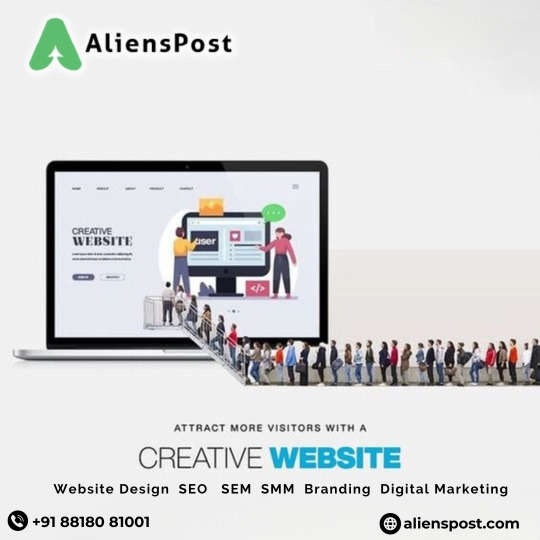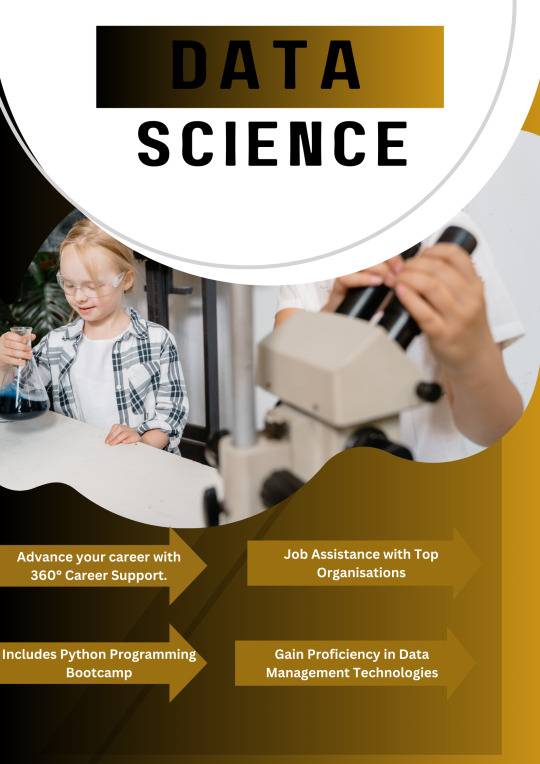#Business Analysis
Explore tagged Tumblr posts
Text
I need to write user stories and a full analysis.
For the French Project Manager.
Who is just gonna mansplain at me and make me feel bad about my work and piss me off.
I need to do it even though I don’t want to because it’s literally my job.
Please send encouragement.
#working in IT#The French Project Manager#Adventures in Anger Management#(dys)functional analysis#business analysis#IT consultancy#user stories
6 notes
·
View notes
Text
Top 10 ERP software provider in India | shantitechnology
STERP (shantitechnology) is a leading ERP solution provider in Pune, delivering industry-focused ERP for manufacturing companies in Pune. As one of the top 10 ERP software providers in India, we specialize in streamlining operations with cutting-edge manufacturing ERP software in Pune. Trusted among the best ERP software providers in Pune, we empower businesses with seamless automation and efficiency.
Choose STERP – one of the most reliable ERP software companies in Pune for unmatched enterprise solutions!
#ERP for manufacturing company in Pune#Manufacturing ERP software in Pune#ERP solution providers in Pune#India#ERP software providers in Pune#Pune#Mumbai#Maharashtra#ERP software companies in Pune#Top 10 ERP software provider in India#ERP solution#ERP software#Cloud ERP#Business Solution#MSME#SME#business analyst#business analysis#ERP software provider
5 notes
·
View notes
Text
Ready to Boost Your Career? Get Your BCS Foundation Certificate in Business Analysis!
youtube
2 notes
·
View notes
Text

Attract more visitors with a creative website
A well-designed website goes a long way in helping your brand establish an online presence and gain loyal customers. your design decisions not only impact your website’s performance but your brand recognition as well. A creative website design can provide Brand Credibility, User Retention, SERP Rankings, Seamless User Experience and many more. Alienspost provides you not only a creative website but also help in business gowth, reach your maximum target audience, marketing and improving your seach engine result by providing a good rank. Post your project on Alienspost and let your business shine in commercial society.
#business analysis#marketing tips#SEO#PPC#target audience#online services#business world#Alienspost#web development#digital marketing agency#website designer#advertising
9 notes
·
View notes
Text
"Unveiling the Future: How Data Science is Revolutionizing Upcoming Industries"
Data science continues to have a substantial impact on various industries, and its scope is expected to expand as new technologies emerge and businesses realize the potential of data-driven insights. Here are some upcoming industries where data science is likely to play a significant role:
Healthcare and Life Sciences: Data science can aid in personalized medicine, drug discovery, predictive analytics for patient outcomes, and healthcare operations optimization.
Financial Services: Financial institutions use data science for fraud detection, risk assessment, algorithmic trading, customer behavior analysis, and credit scoring.
Retail and E-Commerce: Data science helps optimize inventory management, pricing strategies, recommendation systems, and customer segmentation for targeted marketing.
Energy and Utilities: The energy sector benefits from data analytics for smart grid management, predictive maintenance of equipment, and energy consumption optimization.
Manufacturing: Data science improves manufacturing processes through predictive maintenance, quality control, supply chain optimization, and demand forecasting.
Agriculture: Precision agriculture utilizes data science to optimize crop yield, resource allocation, pest control, and environmental monitoring.
Transportation and Logistics: Data science plays a role in route optimization, fleet management, demand forecasting, and autonomous vehicles.
Telecommunications: Data science assists in customer churn prediction, network optimization, and personalized service offerings.
Media and Entertainment: Content recommendation, audience segmentation, and analyzing viewer engagement are areas where data science is making an impact.
Real Estate: Data science helps in property price prediction, market trend analysis, and investment decision-making.
Environmental Conservation: Data science aids in monitoring and analyzing environmental data, including climate patterns, pollution levels, and habitat preservation.
Education: Data science can personalize learning experiences, assess student performance, and optimize educational resources.
Government and Public Services: Data-driven decision-making is becoming increasingly important for optimizing public services, policy formulation, and resource allocation.
Insurance: Insurers use data science for risk assessment, claims processing, fraud detection, and customized pricing.
Travel and Tourism: Data science enhances traveler experiences through personalized recommendations, pricing optimization, and destination insights.
Pharmaceuticals: Data science plays a role in drug discovery, clinical trials optimization, and pharmacovigilance.
Smart Cities: The concept of smart cities involves integrating data science for efficient urban planning, traffic management, energy consumption, and public services.
Cybersecurity: Data science helps in identifying and responding to cyber threats by analyzing patterns and anomalies in network data.
As technology continues to advance and businesses recognize the value of data-driven insights, certybox is creating a difference in providing the top professional courses along with job assistance. It's essential for professionals in the field to stay updated with the latest developments and tools to make the most of these opportunities.

5 notes
·
View notes
Text
Blog No. 61 - Reflecting on My Experience at the Insurtech Insights Conference London 2025.
Reflecting on My Experience at the Insurtech Insights Conference London 2025. I’ve been reflecting on the insights gained from this incredible event I attended earlier this week. Here are a few key takeaways that stood out to me:- Innovation at Scale: Companies are successfully leveraging AI and big data to enhance underwriting processes, improving efficiency and customer experience. Customer…
#blog#blogger#blogging#blogs#busi article#business#Business Analysis#insurance#Insuretech#learning#management#management atheneum#PMI#project management#UK#UK Insurance
0 notes
Text
Understanding the Business Analysis Lifecycle and Its Phases
The Business Analysis Lifecycle is a systematic approach used by business analysts to understand, define, and implement solutions to business problems. It typically involves several key phases: Initiation, where the need for analysis is identified; Planning, where analysis goals and activities are defined; Elicitation, where information is gathered from stakeholders.
Read more: https://pinpdf.com/understanding-the-business-analysis-lifecycle-and-its-phases-7b8c1f99b46dd0bf6f7dd3ace00a6128.html
0 notes
Text
Drive University Solutions: Business Analysis Engineer Opportunity at Midlands State University! - March 2025
Are you a skilled Business Analysis Engineer ready to contribute to the advancement of a leading university? Midlands State University (MSU) is seeking a talented professional to join their team as a Business Analysis Engineer. This is an exciting opportunity to bridge the gap between business needs and technical solutions, ensuring the university’s systems and processes are efficient and…

View On WordPress
#Business Analysis#Business Analyst#Career Zimbabwe#Computer Science Jobs#Hot Zimbabwe Jobs#IT Jobs#Job Opportunity#Midlands State University#msu#Now Hiring#Software Engineering Jobs#Tech Jobs
0 notes
Text
How Business Analysts Can Develop Business Acumen
youtube
0 notes
Text
0 notes
Text
#Business News#Market Trends#Industry Updates#Economic News#Corporate News#Business Insights#Financial News#Startup News#Global Business Trends#Business Analysis
0 notes
Text
Reading fanfic while writing up a TOGAF business capability and structure process setup for my job’s finance department (please don’t ask, I have a bullshit email job), and I’m realising something about, idk, narrative granularity?
You ever read a fanfic and it’s just… too many small and inconsequential events after one another and then suddenly a chunk of real development is summarised in a single descriptive paragraph in order to justify a big character development or plot point, only to then immediately move on to the next set of teeth-grindingly inconsequential events getting a full-page spread?
The granularity is off. It’s like a badly described set of business processes, where the detail of one process is so fine-grained and low-level that the bigger picture of the business is entirely lost, and then the next process is described so abstract and high-level that it becomes entirely disconnected from functional reality, and these different degrees of abstraction are mixed up so you can’t even properly increase or decrease the level of detail over the whole.
Anyway.
I feel like you could probably write a business analysis LinkedIn Lingo style book about fanfic writing?
#disaster thoughts#(dys)functional analysis#business analysis#functional analyst#writing fanfic#about writing#writeblr#narrative granularity#fanfic#disaster writes#TOGAF#business analyst#working in it
2 notes
·
View notes
Text
Top Challenges You Might Face During ERP Implementation and How Consultants Help
Implementing an Enterprise Resource Planning (ERP) system is a transformative step for any business. However, the process is often fraught with challenges that can derail timelines, increase costs, or impact operational efficiency.
This is where ERP Implementation Consultants prove invaluable, providing the expertise needed to navigate obstacles and ensure success.
At ERP Services Advisor, we specialize in connecting businesses with the right consultants to address these challenges. Let’s explore the top issues faced during ERP implementation and how consultants can help.
Challenge 1: Inadequate Planning
One of the most common pitfalls is insufficient planning. Businesses may underestimate the scope of an ERP project, leading to delays and budget overruns. ERP implementation consultants bring a structured approach, helping you define clear objectives, set realistic timelines, and allocate resources effectively.
Challenge 2: Resistance to Change
Introducing a new ERP system often meets resistance from employees who are accustomed to existing processes. Consultants play a crucial role in change management by fostering communication, addressing concerns, and providing training programs to ensure smooth adoption.
Challenge 3: Data Migration Issues
Migrating data from legacy systems to a new ERP can be complex and error prone. Consultants ensure data accuracy and integrity by using proven methodologies for data mapping, cleansing, and validation, reducing the risk of disruptions.
Challenge 4: System Customization
Many businesses require tailored ERP solutions to meet specific needs. However, excessive customization can lead to complications. ERP consultants strike the right balance by recommending best practices and scalable customizations that align with your business goals.
Challenge 5: Post-Implementation Support
Even after go-live, businesses often face technical issues or need to fine-tune processes. Consultants provide ongoing support to address these challenges, ensuring your ERP system continues to perform optimally.
At ERP Services Advisor, we connect you with experienced ERP implementation consultants who understand the unique requirements of your business. By partnering with us, you can overcome these challenges and achieve a successful ERP implementation that drives efficiency, productivity, and growth.
0 notes
Text
The future of business analysis is set for transformation, driven by AI, automation, and data analytics. As businesses demand more agility and data-driven insights, analysts will need to adapt by enhancing technical skills, embracing new technologies, and fostering cross-functional collaboration. The next decade will see a shift toward more strategic roles, with business analysts playing a crucial part in driving innovation, optimizing decision-making, and aligning organizational goals with evolving market demands. The future is dynamic and full of opportunities.
0 notes
Text

Professional marketing services
Frame yourself on social media and convert your business into brand with marketing strategies provided by Alienspost. Digital marketing is a very much effective way is that targeted audience can be reached in a cost effective and measurable way. Digital marketing is a need for business growth. Also it provides Higher ROI, Creates brand awareness, provides equal opportunities, increases conversion, effects cost, content focused approach which are very important for business branding.Alienspost provides all these faculties through digital marketing. Take your business to another level with Alienspost and let your brand shine in market.
#alienspost gifs#marketing gifs#professional services#SEO specialist#Social media marketing#influencer marketing#business analysis#branding design#digital marketing#freelancers#online services#business world#success secret
3 notes
·
View notes